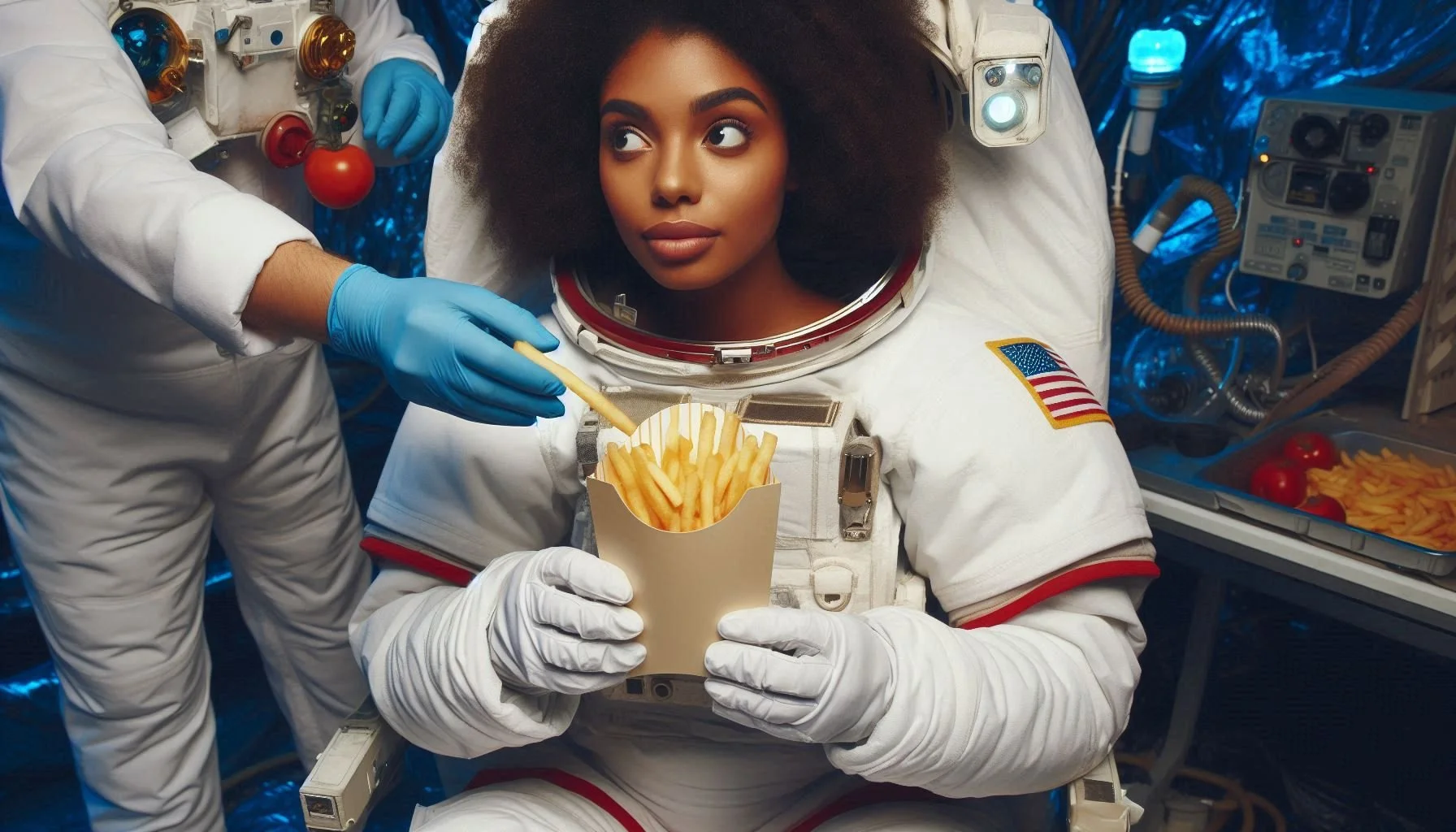Somebody Has to Serve the Astronaut Her French Fries
Astronauts can't do it alone. By filling a need we share in their success -- and help ourselves.
Today I visited the Hawthorne, CA SpaceX plant.
Seeing the hustle-n-bustle inside the plant (even on a Saturday) leaves no doubt as to what the future holds. We can look forward to increased advancements in (and travel to) Space that will require more people to be part of the aerospace industry in some way, both in supportive and operational roles. (Side note, organizations like NASA - National Aeronautics and Space Administration and the United States Space Force understand this all too well.)
I think we should anticipate what role Space will play in our lives a few years from now, and young leaders would be wise to proactively secure their place in the industry. Not just because Space is our future, but because -- in a world where it's harder for young people to forge a path to success -- they can create a career for themselves and progress in ways not experienced through traditional education or employment channels.
This is of particular importance in underserved communities. The gap between traditional public K-12 education and a career in the aerospace industry can be pretty big. At the risk of sounding like a preachy old man, I propose students look for where a need exists (in the aerospace industry or elsewhere) and find ways (and ask for help) to jump in.
To the average person, talks about working in Space usually includes stereotypical conversation involving astronauts. You know -- "shooting for the stars" and all that.
But we can't all be astronauts.
Don't come at me ... I'm not talking down to the next generation or implying that people should give up on their dreams. We definitely NEED astronauts, and the strict prerequisites means we should inspire as many people as possible to pursue this goal.
But I do think the numbers tell us our chances of becoming an astronaut are a lot smaller than our chances of doing other equally great things that support the aerospace industry (and can prop us up for success in the future.)
Walking through the SpaceX plant reminded me of the obvious: Astronauts (and the miracle of Space launch, in general) relies on support from people in multiple career fields to make the impossible a reality.
Somebody has to design the rocketry and vehicles that carry astronauts and materials into space.
Somebody has to help run the human resource offices at the companies where astronauts work or where rockets are built.
Somebody has to configure the electrical wiring in the capsule astronauts sit in; or manage the computers and communications networks they use to talk with satellites or ground control.
Somebody has to book the speaking engagements, school visits and media interviews for the astronauts. Somebody has to take pictures and document their activities.
Somebody has to design the clothing astronauts wear.
Somebody has to ensure the astronauts are fed ... somebody has to serve the astronaut her french fries.
And I wager that being a chef, public relations specialist, network administrator, engineer, electrician or HR rep for an aerospace organization carries with it a level of prestige and pride (and pay) that may not exist in a typical 9-to-5 cubicle farm company or retail store.
We should continue to encourage our youth to dream big -- to be astronauts, even. Leaders like Axiom Space's Peggy Whitson, Polaris Program's Scott "Kidd" Poteet and US Space Force Colonel Nick Hague are certainly doing their part, and NASA has a long list of those who have gone before us to serve as inspiration. In the civilian/commercial sector, legends like Dr. Sian “Leo” Proctor lead the way.
But we can't all be astronauts.
Yet, we don't have to be. There are LOTS of aerospace-related jobs out there (in both military and civilian roles), and we should do whatever we can to expose students to the multiple ways they can still shoot for the stars.
Their future (and ours) depends on it.

